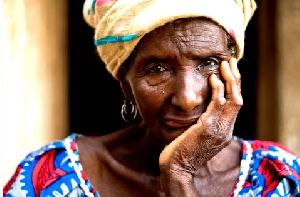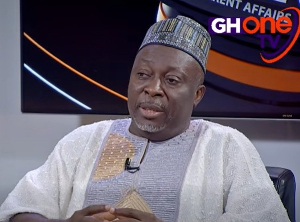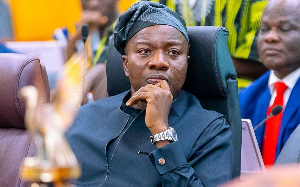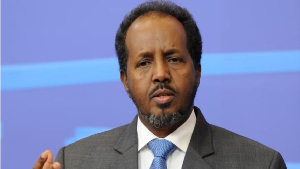On a sultry late afternoon one Thursday, I saw an old lady in her late seventies or early eighties sitting alone near the gate of a friend’s house. She was weak and in tears. A group of young passersby dug at her with derogatory comments. Others called her a witch, a wicked old woman. Not far from her was a church, a police post and a number of residences, each with human presence. A brief chat with her revealed that she has been accused by the pastor of the nearby church of being a witch, and considered the cause of the mishap of her daughter including her inability to get married, conceive a child and prosper in life. The daughter who brought her from the village to Accra on request of the pastor has abandoned the poor woman at the church to find her way back to her village.
This is an example of how some people convey “respect and honour” to our seniors in Ghana.
Ghana’s population of older people is increasing, according to the 2010 National Population Census by the Ghana Statistical Service. This trend is no different from the global trend. According to data from the United Nations (2015), it is estimated that between 2015 and 2030, the older population in the world is projected to grow by 56 percent, from 901 million to 1.4 billion. By 2050, the global population of older persons is projected to more than double its contemporary size, reaching nearly 2.1 billion. Globally, the number of people aged 80 years or over, the “oldest-old” persons, is growing even faster than the number of older persons overall. Projections indicate that in 2050 the oldest-old will number 434 million, having more than tripled in number since 2015 (United Nations, 2015). Interestingly, in Ghana, issues of older people are hardly brought to a national agenda resulting in an inadequate allocation of fund in the national budget for programmes and activities on ageing.
As a result of the changes (range from physical, biological, social, psychological, financial and spiritual) that occur as one grows older, it demands that society provides adequate support to this group of people. Moreover, the ability of older persons to cope with the changing conditions in their health, economic and social activities depends heavily on the kind of care and support received from the children and younger family members.
In traditional African societies such as Ghana, particularly in the past, older people are often perceived to be the mediators between the living and the ancestors. They are considered reservoirs of cultural heritage and fountains of wisdom. It is also believed that old age is an ancestral blessing bestowed on those who live righteously, engendering efforts to cater for them and hold them in high esteem. Moreover, children who take good care of their older people, especially those who cannot take care of themselves, are said to be blessed and will also grow old. Irrespective of how the younger generation (family members and children) feels about older persons, it is unexpected of them to shun this duty without running the risk of being socially sanctioned or accused.
However, older people are being accused each day on our televisions, radios and other media platforms of being witches and wizards. In many instances, young people continue blame these older people for the lack of progress in their marriage, including childlessness, lack of progress in their businesses, failure to acquire visas to travel abroad, sicknesses and other afflictions. These older people, especially women, are wrongly accused, abused physically, emotionally, neglected, abandoned and not infrequently chased out of their homes and communities.
Demonization of older women has become the order of the day. Making mockery of older people and rendering all kinds of abuse to this group people by caregivers, friends, children, family members and even health professionals are becoming common in our society. Moreover, what worsens the situation is dwindling of extended family support. The care responsibility of the older people which used to be a communal responsibility of the extended family is now limited to biological children.
It is finally evident that modernization of society has affected negatively the unique extended family support system, social cohesion and values associated with old age in our traditional societies. Currently, family care and support for older people are rapidly changing. The effectiveness of the traditional caring systems and its associated values, respect and sanctions have been compromised due to migration, poverty, high schooling cost, divorce and how old age and the older people are being perceived by the society.
Interestingly, what we have forgotten is that older people in Ghana have played and continue to play pivotal roles in all fields of human endeavour, including running the affairs of the country, be it the economy, education, health, politics, religion, entertainment, media and so on. For instance the works of the national Chief Imam, Sheik Osman Nuhu Sharabutu, the Former Speaker of Parliament Justice Joyce Adeline Bamford-Addo, the speaker of parliament Prof. Aaron Mike Oquaye, the former chief Justice Georgina Wood, Prof. Ama Ata Aidoo, and the likes are ample testimony of the relevance of the role of older persons in the country’s development.
At the family and community levels, older people continue to take care of children at home while the younger generation goes out to work. They eventually become the caretakers of the house, in some cases the bread winners of the house, providers of the home chores among other. They are whom the younger generation run to seek counsel on a wide range of issues regarding family, marriage, sharing of property, peaceful co-existence, tolerance, and many more.
If the above mentioned roles are anything to go by, why are we neglecting this section of our population who continue to contribute to the sustainability of our cultural heritage and development of our dear nation? Why are we allowing older persons to go through psychological trauma, to the point that they contract certain chronic diseases that lead them to the grave much earlier than their expected time? Are we contributing to the trauma that the older people go through every single day? How can we protect older persons, who in one way or the other have contributed to the development of this country?
The fact is, Ghana has over the years developed a number of wonderful policies, legislations and programmes that aim at addressing issues and challenges that confront the older population. Unfortunately, these policies remain written documents sitting in the books and laws of Ghana without any force behind their implementation. Each of these policies has well-structured institutional frameworks to facilitate their implementation and yet, the institutions mandated for their implementation hardly have their full funding support to effectively implement them, resulting in these implementing organizations left weak, even paralyzed, so that they are unable to effectively drive the implementation of the policies - for example the Ghana National Policy for the Aged. Some of these policies have actually expired and no effort is made to review and develop new ones if not enact a law.
Additionally, most of these policies and laws enacted are not widely disseminated. This means most older people are not aware of their rights. This is particularly so because a higher proportion of the older population in Ghana did not benefit from formal education and mainly worked in the informal sector. How many of them are aware of the provision under Article 37(2) (b) of the 1992 Constitution of Ghana, NHIS, the National Population Policy revised edition of 1994, the LEAP, and the Ghana National Policy for the Aged, to name a few?
Subsequently, the absence of legislative instruments that make offences under the various policies and laws punishable by law also contribute to their ineffective implementation. For instance, how is a service provider dealt with when a person aged above 70 years is denied access to free health care services under the NHIS in a public health facility?
Are we as a nation going to sit down unconcern and watch this stage in life which is supposed to a period of life for one to reflect back at their footprints and smile for having lived a fulfilled life, to turn out to be a period of misery, pain, regret and grief for many where our health systems can not to response to the needs and demands of older people, where there is inadequate support and care systems, where on daily bases they are abuse? Are we ready to work to achieve the Sustainable Development Goal 3 and 16, comply with the UN Principles on Older persons, our own 1992 constitution, Article 37(2) (b) and many national and international policies that we have developed and ratify respectively?
All said and done, old age is an inevitable stage of life that all must endure except those who take an early bus. It would be most fulfilling if effective measures are put in place to ensure effective implementation of these policies and programmes. The problem with Ghana is not the absence of policies, but their effective enforcement. As we mark this year’s international day of the Older Persons, let us all particularly the younger persons in leadership position come together to make old age a better stage of life as it will become our issue sooner than later.
I wish all our seniors and human right champions a happy celebration.
Opinions of Thursday, 18 October 2018
Columnist: Esenam A. Ahiadorme















